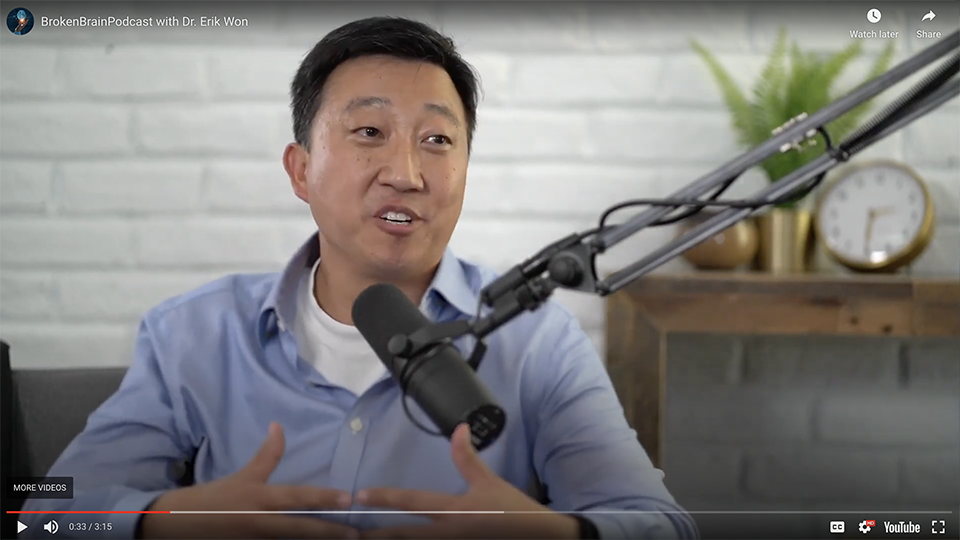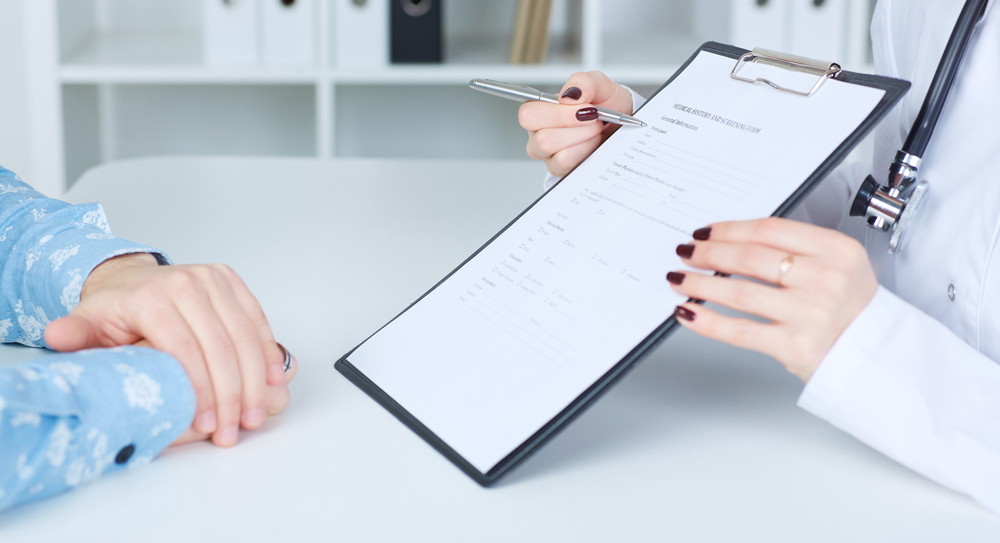
Traumatic Brain Injury (TBI)
We offer a new approach to treating head injuries, traumatic brain injury, and concussions.
It’s called MeRT, which stands for Magnetic e-Resonance Therapy.
Simply stated, we use a magnetic field to stimulate, balance, and restore brain function, guided by very sophisticated imaging and diagnostics.
MeRT: A Breakthrough Treatment of the Long-term Effects of Head Injuries
We offer MeRT® treatment for traumatic brain injury (TBI) and concussions. MeRT utilizes rTMS technology (repetitive transcranial magnetic stimulation).
MeRT, or Magnetic E (EEG and EKG) Resonance Therapy, has been used successfully to treat TBI and concussions. If you have suffered a head injury, this treatment may be of benefit to you.
People who have suffered a brain injury will have markers that are visible in their EEG studies. Research has shown that people with a traumatic brain injury will have a higher power in their delta band frequencies and a lower power in the alpha bands.
People with traumatic brain injuries often go through other types of therapies to help them regain function and cope with their injury or disability. We can use MeRT treatment in conjunction with these therapies.
Mert for head injuries
What is a Traumatic Brain Injury?
The CDC (Centers for Disease Control) defines a traumatic brain injury (TBI) as:
A blow to the head or a penetrating head injury that disrupts the normal function of the brain. TBI can result when the head suddenly and violently hits an object or when an object pierces the skull and enters brain tissue. An injury can also occur without a direct blow to the head, such as in an auto accident where the forces cause the head to move violently in one direction and then snap back in another direction. This causes the brain to be jostled around inside the skull and can also injure the brain. Suffering a closed head injury can produce symptoms that range from mild to severe, based on the degree of damage that was done to the brain.”
About Head Injuries
Traumatic brain injuries are also common in athletes who participate in contact sports such as football and experience multiple “head hits.” These hits affect the brain, and over time, the damage becomes cumulative, resulting in post-concussive disorder.
People at higher risk for brain injuries include athletes, the elderly (because they are at higher risk for falls), and children and teenagers who are involved in physical-type activities.
Members of the military are also commonly affected. Traumatic brain injury for these folks can occur by direct hits or injuries to the head, but also by repeated exposures to the forces of “blast injuries.”
Athletes, in particular, can suffer repeated hits or injuries to the brain, and the effects of those can accumulate over time. The full degree of symptoms may present later on as the brain begins to deteriorate.
Some who have suffered a traumatic brain injury require hospitalization. Patients may need other therapies to assist with regaining memory, learning skills, coordination, physical function, speech, and coping mechanisms.
Brain injuries are complex and can affect many different aspects of a person’s life, including their emotions and the ability to think clearly. Some people are unable to work again or complete day-to-day activities.
The TMS equipment used is FDA-cleared to treat Major Depressive Disorder and OCD and is used off-label to treat a wide variety of conditions, including TBI.
Contact our
New Patient Coordinator
Or fill in the form at the bottom of the page for more information.
“I have a whole new lease on life.”
Everything changed when I started treatment. Within two weeks, I was sleeping better. I was off all 12 of the meds I was on when I began treatment, and I was starting to enjoy life again. After the first month, I was socializing with people, I was able to work out for the first time in years, and I started to help my wife with the bills and our budget.
“As I write this, I just completed my sixth week of treatment. A conservative estimate is that I have had a 60–70% reduction of the symptoms I listed above, and I have a whole new lease on life. I can focus and I feel good about myself. I feel confident. And I laugh again. Most importantly, I can feel the love for and from my family again.”
– DAVID, MERT PATIENT
MeRT For head injuries
Depending on the severity of the injury, symptoms can include:
- Loss of consciousness
- Headaches
- Fatigue or lethargy
- Dilated pupils and vision changes
- Dizziness
- Memory problems
- Confusion
- Cognitive decline
- Inappropriate emotional responses
- Anger
- Depression
- Feeling of isolation
- PTSD (post-traumatic stress disorder)
- Anxiety or panic attacks
- Facial weakness
- Weakness or loss of function in other parts of the body
- Loss of bladder or bowel control
- Breathing problems
- Numbness and tingling in different parts of the body
- Loss of hearing or tinnitus
Contact our
New Patient Coordinator
Or fill in the form at the bottom of the page for more information.
Mert for head injuries
What is MeRT?
MeRT is a tailored, highly individualized form of TMS or transcranial magnetic stimulation. In simpler terms, we use magnetic waves to stimulate specifically targeted areas of the brain that have been found to not be communicating or functioning optimally.
MeRT is a non-pharmaceutical and non-invasive treatment. The technology involves using very sophisticated diagnostics and imaging so that we customize treatment for each individual. We tailor a personalized protocol based on the location, frequency, and amount of power used by the magnet, specific to each person’s unique condition. MeRT can improve brain communication and synchronization and lead to significant and long-lasting improvements.
The U.S. Department of Defense has done much of the initial MeRT research on veterans returning from combat. An article published in Defense One further explains the DOD’s research and the benefits of MeRT for people suffering from TBI, PTSD, and MDD. The private sector has completed additional studies on other conditions.
MeRT For head injuries
After MeRT as Treatment for TBIs
I’m two or three months past my last treatment, and I can honestly say that my brain is in a better place than it was before. The emotional highs and lows that I was living with have stabilized. My cognition took off during that period (of treatment), and it hasn’t slowed down since.”
– NICK HARDWICK, RETIRED NFL CENTER, CHARGERS
MeRT treatment for head injuries is rooted in years of independent research documented in published studies
This approach represents a specialized form of rTMS (repetitive Transcranial Magnetic Stimulation) that has been shaped by rigorous scientific investigation. The methodologies of MeRT are underpinned by a substantial body of evidence found in prestigious scientific journals. Here are some notable studies.
The use of repetitive transcranial magnetic stimulation (rTMS) following traumatic brain injury (TBI): A scoping review:
“Evidence suggests that rTMS has the potential to be an efficacious therapeutic intervention for multiple symptoms after TBI, including depression, dizziness, central pain, and visual neglect. “
Neuromodulatory Interventions for Traumatic Brain Injury:
In this special issue of the Journal of Head Trauma Rehabilitation, we share with readers some of the latest advancements in neuromodulation specific to TBI, while providing the framework to further our understanding of how and why functional skills are likely improved. While neuromodulatory interventions can play a critical role in functional recovery for those with TBI, the heterogenous nature of TBI means that clinical implementation of neuromodulation will require understanding, at the individual and group levels, of how, when, and where to alter brain activity to support sustained recovery of sensory and higher order functions.
The role of transcranial magnetic stimulation in treating depression after traumatic brain injury:
“This study suggests that rTMS is a potential treatment option for depression following TBI. Both 15 to 16 session and 30 to 38 session cohorts showed significant decreases in depression as measured by PHQ-9 following rTMS treatment. These findings support the use of rTMS in post-concussion depression treatment and highlight the need for more research on rTMS therapy following TBI.
Randomized trial of rTMS in traumatic brain injury: improved subjective neurobehavioral symptoms and increases in EEG delta activity:
“Subjective measures of depression, sleep dysfunction, post-concussive symptoms (PCS), and executive function showed significant improvement with stimulation, retaining improved levels at two-week follow-up. EEG delta power exhibited elevation one week after stimulation cessation.”
Neural mechanisms of emotional health in traumatic brain injury patients undergoing rTMS treatment:
“Our findings uncover the neural mechanisms underlying the improvement in emotional well-being in TBI due to application of neuromodulation. The main effect of rTMS is to reduce emotional disorders and hence consequently it may improve cognitive and executive functions.”
Low frequency transcranial magnetic stimulation for cognitive recovery after traumatic brain injury: A case report:
“Our results are consistent with studies showing improved cognitive functioning in TBI following a unilateral or bilateral rTMS protocol that used low frequency rTMS over the right DLPFC. Therefore, this stimulation site may be promising for improving cognitive recovery in TBI, especially when combined with cognitive rehabilitation.”
Repetitive Transcranial Magnetic Stimulation for Treatment of Depression in a Patient With Severe Traumatic Brain Injury:
“Case Report: A 37-year-old male with history of anxiety and bipolar depression incurred a TBI after a 60-foot fall. After his physical recovery, the patient had refractory depression. Eight months after the TBI event, he underwent a 6-week course of rTMS treatment and had a 70.8% improvement in mood symptoms by the end of the therapy as indicated by the Patient Health Questionnaire-9, transitioning from severe to mild depression according to the scoring system. Clinical correlation during the months following conclusion of rTMS therapy showed no signs of remission or adverse side effects. The patient remains stable and lives independently 1 year after treatment with mood-stabilizing medications.
“Conclusion: This case provides evidence for successful treatment of refractory depressive symptoms after severe TBI with the addition of rTMS to psychotherapy and mood-stabilizing medications, supporting the safety and tolerability of this novel therapeutic approach. Further studies are needed to validate the contribution of rTMS for management of mood symptoms in patients with TBI.”
MeRT Treatment Featured on The Broken Brain Podcast
The Broken Brain Podcast explores the inner workings of the brain and body. One episode featured MeRT as a breakthrough treatment for various neurological issues, especially Traumatic Brain Injury.
Dr. Eric Won from Wave Neuroscience (the parent company of MeRT) speaks about using MeRT treatment with military members who have experienced depression, TBI, and PTSD from serving their country. Dr. Won also gives testimony to the incredible successes of these veterans after treatment.

Success from TBI Treatment using MeRT
More Testimonials from TBI Patients
“I’m back! My TBI turned me into someone I barely recognized. I was depressed, mean, and short-tempered. I pushed through life filled with frustration and a deep sense of sadness that this was it. And I just had to keep pushing through life with an overwhelming tiredness.
“I’m so glad I was wrong. I think my direct reports and family are even more thankful. This treatment changed everything, and I am forever thankful.”
41-year-old male with TBI
“I was offered the opportunity to attend the BTC to help with the effects of the TBIs I had endured over 21 years of Military Service. And I am absolutely glad I did so — I felt the positive effects of the treatment in the first 3 days.
“I had irritability issues, although California Traffic will do that to you, and sleeping issues, among other things. On Day 3, I started sleeping through the night. And not just sleeping, but sleeping hard and dreaming. So I know I was in R.E.M. sleep.
“It has helped me focus, feel more energetic, less irritable, more caring to others, and helped with joint pain and tinnitus. The staff is also very amazing and extremely professional. I highly recommend the BTC. Trust the process, and you’ll have the same results as I did.”
=TBI Patient
Patient“I did six weeks of therapy at the Brain Treatment Center. I started therapy with anxiety and depression due to traumatic brain injury. After the third week, it felt like a weight was lifted off my shoulders. I started to have ah-ha moments, but it was about things I already knew.
“The therapy allowed me to clear my brain and concentrate on things. I was no longer spiraling about things that really didn’t matter but seemed real at the time. Thank you for my life back.”
TBI Patient
“The team at the Brain Treatment Center are the most genuinely kind people you will ever meet. And the MeRT treatment has made a HUGE quality of life positive change for me.
“I am a vet who got blown up a couple of times and I suffer from TBI and PTSD. These sessions have turned my life around. My wife notices the positive changes in my depression, anxiety, and irritability and says I am fun to be around again.
“I can’t say enough great things about this place. Thank God it exists!”
Cyrus B.
“I’ve made significant progress in cognitive ability, stress tolerance, and mental clarity. I have been able to handle decisions much better and think clearer. And I have been able to significantly decrease conflict with my family and actually lead much better.”
Male with TBI
“In the ensuing months after the concussion, I just wasn’t myself. My academics began to suffer as well. I didn’t feel right. My EEG showed me that something had physically changed with how my brain functioned.
“After three days of treatment, I felt substantially better. After two weeks, I felt like I did before my injury. MeRT was life changing.”
21-year-old female with TBI
“I’d just always ‘outworked’ it. After the last concussion, that wasn’t an option, even though I had previously walked off a dozen concussions. It’s vital to know that not all TBIs result in massive concussions, but they all add to the erosion of the mind and self if untreated.
“Through EEG, MeRT, and some subtle sleep and attention shifts, I’ve had a radical, nourishing, strengthening, and dare I say, ‘healing,’ that has brought me to see life through a filter I’ve never known was available.
“Giving life a chance is sometimes just staying in ‘the Try.’ If you are damaged, confused, and at the end, know that you have allies that you’ve never met before.”
Tait Fletcher
Stunt PerformerOur Medical Director, Neurologist Dr. Miller
Dr. Spencer O. Miller, a Neurologist in Dallas, Texas, is the owner and Medical Director of Brain Treatment Center Dallas. He received his medical degree from the University of Mississippi School of Medicine and has been in practice for 12 years. He spent five of those years in the US Air Force, where he saw many brain injuries, including soldiers suffering from PTSD and TBI.
Dr. Miller now specializes in MeRT treatment of traumatic brain injury, depression, post-traumatic stress disorder, dementia, autism, and multiple other brain disorders at his clinics, the Brain Treatment Centers in both Dallas and Plano.
Dr. Miller is also affiliated with Baylor University Medical Center, where he specializes in stroke, headache medicine, traumatic brain injury, post-traumatic stress disorder, and seizure. Additionally, he is associated with the Texas A&M Science Center College of Medicine.
He also speaks multiple languages, including Spanish.
Contact Our New Patient Coordinator for More Information
Our New Patient Coordinator is here for you. During your consultation, she will take the time to answer any questions that you may have, listen to your concerns, and carefully explain all the details and information you need.
If, after talking to her, you are interested in further exploring whether you could benefit from MeRT, the next step would be to schedule an EEG and a consultation with our doctor.
With thorough diagnostics, the doctor can show you what is happening in your brain and what may be causing the issues. At this point, we can determine whether you (or your loved one) may benefit from MeRT Treatment, and you can decide if you would like to move forward.
Call our New Patient Coordinator
Or fill in the form below.
Life Can Be Better
You or your loved one can be at peace and enjoy life. With so many successful treatments of a wide range of neurological conditions, we encourage you to explore the possibilities of MeRT Treatment. It can have a lasting impact — and an improved quality of life!


